Ayurveda
Ayurveda
India is recognised for its traditional medicinal systems: Ayurveda, mentioned even in the ancient Vedas and other scriptures. The Ayurvedic concept appeared and developed between 2500 and 500 BC in India. The literal meaning of Ayurveda is “science of life”, because ancient Indian system of health care focused on views of man and his illness. It has been pointed out that the positive health means metabolically well balanced human beings. Ayurveda is also called the “science of longevity” because it offers a complete system to live a long healthy life. It offers programs to rejuvenate the body through diet and nutrition. It offers treatment methods to cure many diseases, which have few modern treatments.

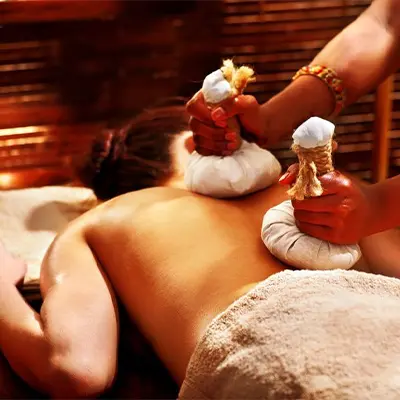
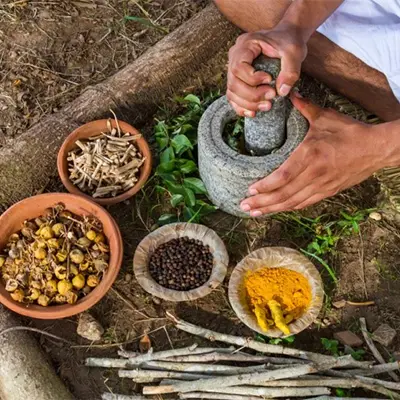

However, one should be aware that Ayurvedic nutrition is not a “magic bullet” system but requires the full participation of the patient to succeed. It is an interactive system that is friendly and educational. It teaches the patient to become responsible and self-empowered. It is a system for empowerment, a system of freedom, and long life.
Ayurveda, the traditional Indian system of medicine has given great emphasis to the promotion of health. Ayurveda therapies are based on restoration of body balance and nourishment of dhatus or tissues (Jarachikitsa). It encompasses the health management, delay aging, and diseases also offers treatment of ageing through rejuvenation.

Rasayana (also known of Rasa (plasma) is one of the eight branches of Ayurveda explains tissue regeneration and cell renewal and refers to rejuvenation and immunomodulation.
It is known for their tissue specificity differentiation inducing activity of stem cells ultimately helping to promote health and vigor of the tissues.
Rasayana drugs act through nutrition dynamics, for example improving the quality of plasma (Rasa enhancing), normalizing the digestion and metabolism (Agni), and improving tissue perfusion of nutrients (Srotas) at molecular level.
Specific rasayana stimulate and nourish respective dhatus. Interpretation of this description offers clues for specific differentiation of stem cells with appropriate extract. The preliminary experiments on Medhya drugs suggest neuronal stem cells differentiation. The advanced understanding about stem cells along with concepts of regeneration in Ayurveda has immense potential in complete well-being of human.
Thus when undergoing any form of regenerative therapy in combination with Ayurveda medicines can provide better proliferation and survival of the stem cells in the body. These cells can differentiate into their respective lineages, thus enhancing the efficiency of the treatment. Using Natural and toxic free medicinal compounds is also said to improve stem cell population. So all these facts suggest that in future the need for artificial and harmful chemicals will be very less and these new forms of treatments will overcome the current limitations of certain treatment methods.
MEDICINAL PLANTS USED IN AYURVEDA
Phyllanthus Emblica
Chondroprotective by inhibiting the activities of hyaluronidase and collagenase type 2.
Echinacea (Leaf, stalk, root)
Can be used to treat colds, flu and for other upper respiratory infections.
Garlic (Cloves, root)
The compounds isolated from garlic have been shown to have antimicrobial, cardioprotective, anticancer and anti-inflammatory properties. These properties may play a role in the belief that garlic helps lower Cholesterol and blood pressure.
Ginger (Root)
Ginger can relieve motion sickness and the nausea caused by pregnancy and chemotherapy. Its wide range of actions may be due in part to its strong anti-inflammatory and anti-oxidative effects.
Gingko (Leaf)
Gingko leaf extract has been used to treat a variety of conditions such as asthma, bronchitis, fatigue, tinnitus, to improve memory, prevent dementia and other brain disorders.
Aloe Vera
Aloe Vera gel contains powerful antioxidants belonging to a large family of substances known as polyphenols. These polyphenols, along with several other compounds in aloe vera, help inhibit the growth of certain bacteria that can cause infections in humans. It helps reduce dental plaque, constipation and lowers blood sugar levels.
Anti-aging herbs
Ayurvedic herbs can help you delay the signs of ageing and combat its visibility on your skin. These herbs are rich in antioxidants that fight against cell damage and initiate new cell growth.
Basil
Basil is the new anti-aging superfood that can help you in your fight against wrinkles. Tropical application of basil can prove beneficial in retaining the moisture and hydration of the skin, reduce roughness, and give a smooth texture to the surface.
Guduchi
Also known as Giloy, this herb has immense anti-inflammatory properties. It works towards reviving the skin’s tissue and fight inflammation. It also improves the immune system and promotes mental clarity.
Ashwagandha
This herb has long been famous for its rejuvenating properties and benefits for the skin, hair, and overall health. The herb also works on reducing wrinkles and makes the skin firmer.
Amla
Amla or Amalaki is a rich source of antioxidants and VitaminC. Its anti~ageing properties can promote healthy skin by firming it, reducing signs of ageing, and make your skin glow. The herb also has visible effects on hair texture, strength and growth.
Turmeric
Turmeric has long been known as the cuts and bruises to improving the immune system to fighting chronic pains, or making you look and feel younger, turmeric can do it all. The compound curcumin found in turmeric has amazing anti-aging, anti-inflammatory and anti-oxidants.
Ginseng
Ginseng is a fantastic anti-aging herb. The phytochemicals present in this herb fight ageing signs and activate the skin’s metabolism. The herb also fights and protects your skin from free radical damage caused due to sun exposure.
Gotu-kola
Gotu-kola is rich in flavonoids and antioxidants that nourish the skin and enhance collagen production to fight visible signs of ageing.
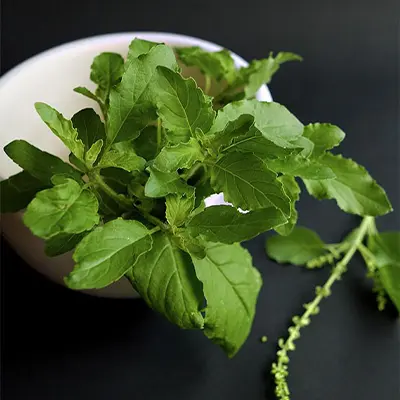
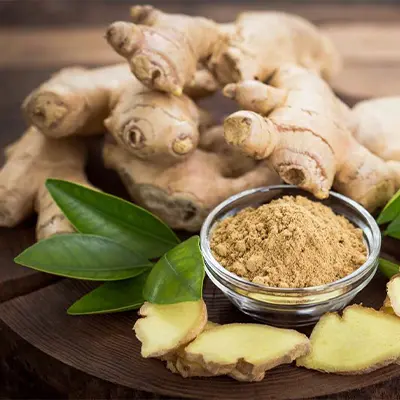


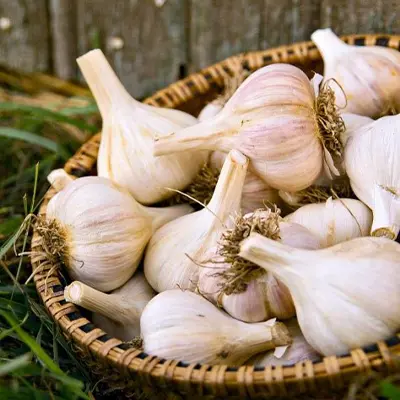

-
2 nd Floor Hb, Specialty Hospital & Research Institute, Near Bhoorarani Gate,
Kashipur Road, Rudrapur,
Udham Singh Nagar, Uttarakhand,
India 263153
- +915944240234, +919897080188
© 2023 Revita. All Rights Reserved. Made with ❤ by Puminati Digital

